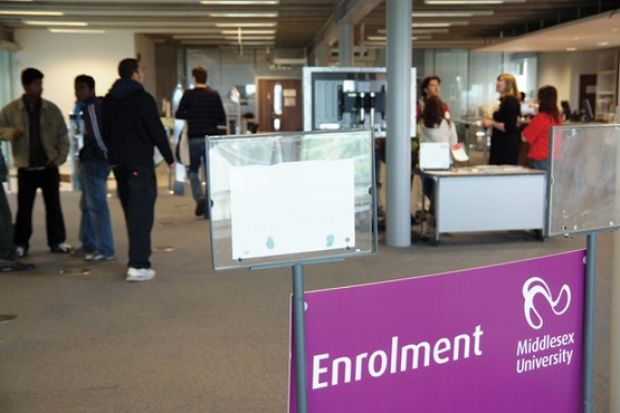Middlesex University has denied accusations of a cover-up after it sacked a finance officer for fraud but did not report the case to the police or to the higher education regulator.
An anonymous group of "concerned stakeholders" circulated an email about the sacking to staff, saying that "we can only speculate as to why prosecution is not taking place".
Michael Driscoll, the Middlesex vice-chancellor, responded to the email by asking staff "not to circulate the email any further".
A university spokesman said: "A member of staff was dismissed following an investigation. The sum of money involved was significantly below the level which we would report to (the Higher Education Funding Council for England) and is being repaid in full. The amount of money involved, and the agreement to return the money, mean that we have not sought police involvement."
The message from the "concerned stakeholders" says: "Let this email stand as an attempt to demand that this matter be brought into the open.
"Were students (and their parents) to discover not only what is being done with their money (at a time when huge cuts are being proposed to budgets across the university), but also that the university has deemed it appropriate to cover the matter up, the cloud cast over the university's reputation would only get darker."
Hefce requires notification of fraud where there is a threat to the institution's financial position, or a "major accounting breakdown".
All fraud involving sums above £25,000 must be reported, a Hefce spokesman said.
Professor Driscoll says in his email to staff that the message from the "concerned stakeholders" contains "some factual inaccuracies and relates to confidential matters affecting individuals".
He notes that Middlesex "cannot provide a commentary into investigations of alleged fraud".
"For this reason, I would urge you not to circulate the email any further," Professor Driscoll writes. "By forwarding the original email, you could be contravening the university's computer use policy."
He adds: "The university rigorously pursues any suspicions of fraud and reports all fraud investigations to the audit committee of its board of governors. Depending on the severity of the alleged fraud, a decision on what action to take is made in consultation with the police."
There was controversy at Middlesex last year after it decided to close its Centre for Research in Modern European Philosophy, which had earned the university its highest rating in the 2008 research assessment exercise.
Middlesex said that the unit was financially unsustainable because of a decline in student demand. The centre later reopened at Kingston University.
